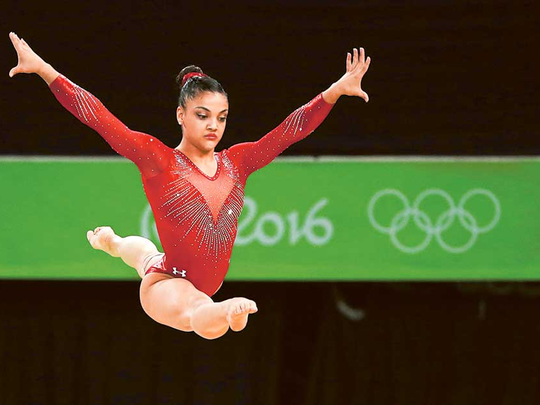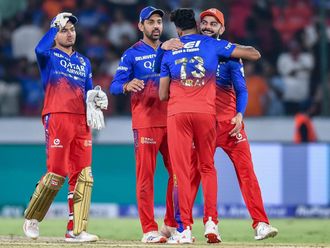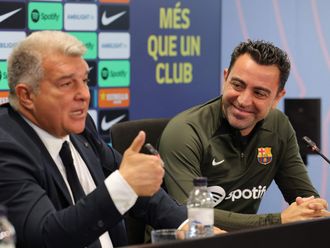
Rio de Janeiro: It happened to Michael Phelps and Allyson Felix. Also to Simone Biles.
The stars of the US team at these Summer Olympics had barely stepped off the medals podium when they were asked about coming back for the 2020 Tokyo Games.
As Biles said: “Tokyo is a long way away.”
While the five-time medalist is still a teenager, other athletes who contributed to the Americans’ 121 medals in Rio de Janeiro were veterans whose careers may or may not last much longer.
In four years’ time, the US could be anchored by some new faces who had breakout performances in Rio.
Sixteen-year-old Laurie Hernandez, the youngest member of the women’s gymnastics squad, won gold with her teammates and added an individual silver in the beam.
Hernandez sounded as if she wanted more of the Olympics.
“These are all new and great experiences for me,” she said. “It’s all very cool and I’m just kind of embracing this new part of my life.”
Swimming phenomenon Katie Ledecky has already talked about coming back, and she could bring along another medal-winner who will be her teammate at Stanford this fall.
Simone Manuel made headlines as the first African American swimmer to earn individual gold. The 20-year-old is competing for something more than personal achievement.
“I am super glad with the fact I can be an inspiration to others and hopefully diversify the sport,” she said after winning the 100-metre freestyle. “But at the same time, I would like there to be a day when there are more of us and it’s not, ‘Simone, the black swimmer.’”
Rio marked the sixth consecutive time the US led in the overall medal count and only the seventh time in Olympic history that a nation topped each of the categories — gold, silver and bronze.
The total of 121 was the country’s highest ever, not counting the boycotted 1984 Los Angeles Games and the 1904 St. Louis Games, when only 15 teams competed.
Alan Ashley, chief of sport performance for the US Olympic Committee, sounded optimistic about the future.
“There have been so many first-time performances by so many athletes in different sports,” he said.
That includes swimmer Ryan Murphy, who walked away with three gold medals in the backstroke. Sprinter Tori Bowie made her Olympic debut with a silver in the 100 metres, bronze in the 200 and gold in the 400 relay.
If sprinter Trayvon Bromell can overcome the injury that nagged him the past few weeks, he might also be a contender in Tokyo. And gold-medalist shooter Ginny Thrasher is only 19 in a sport where careers can stretch for decades.
Among the veterans on the team, diver David Boudia, who won silver and bronze, has talked about continuing. So has wrestler Helen Maroulis, who scored a stunning upset of three-time Olympic champion Saori Yoshida.
“I like to think of it as my profession,” Maroulis said of wrestling. “And if you love what you do, why stop?”
And then there is Michael Phelps, who has insisted that these were his last Games.
“This is it,” he said after winning six medals in Rio to boost his career total to 28. “This is the last time you’ll ever see me racing in the water again.”
Of course, he said the same thing after the 2012 London Olympics. A lot can change in four years.












